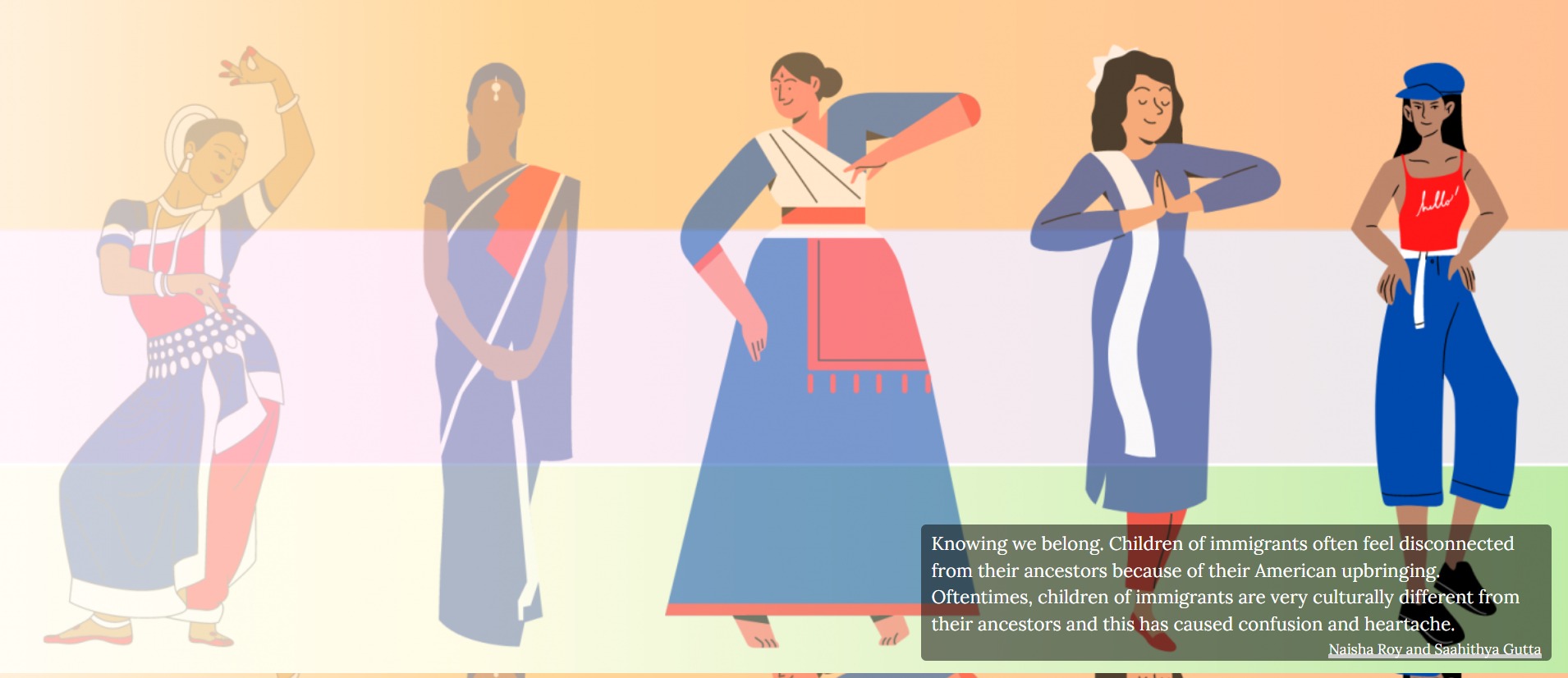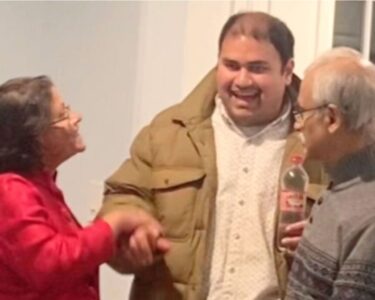By Naisha Roy and Saahithya Gutta
Being the child of immigrants is amazing, until it’s not. We have twice the culture, twice the languages and twice the cuisines. But we also have twice the expectations and twice the gatekeepers. A gatekeeper is someone who takes it upon his or herself to decide which people deserve rights or access to certain communities and identities. Gatekeeping happens to cultures, orientations, industries, and friend groups, and it’s happening in the Indian American community.
Gatekeepers put Indian immigrants into boxes with pretty little titles. They amount to the same message- you’re not Indian enough, or you’re too Indian. We’re constantly sandwiched between wanting to please our families, looking cool for our friends, fitting in with the crowd, and expressing who we are. These gatekeepers taunt us from every aspect of our lives, always reminding us that we’re not enough.
“Are you wearing shorts?!” we hear as we walk out of the airport visiting our relatives for the first time after 2 years. “What are you eating?!” we hear as we open our lunchboxes in the school cafeteria. “What’s with the accent?” we hear no matter the language we speak. “How do you not know this song?!” “How come you haven’t seen this movie?” “What do you mean you don’t know this book?” “You’re going to go to school looking like that?”
These constant comments that bombard us are products of gatekeeping in the Indian community. When we’re trying to fit into both of our cultures but not identifying as either one, where do we belong? It seems as though we should answer that question ourselves, but the multitude of gatekeepers we deal with force the answer on us instead.
Essentially, there are four types of gatekeepers in our lives. The judgemental Indian aunty, the name-caller, the well-meaning native, and the confused parents. They all think they’re helping us figure out who we are by imposing specific criteria on us. But what they don’t realize is that these restrictions only stifle our identity and they force us to be exactly like them.
The Judgemental Indian Aunty
“This was the trouble with families. Like invidious doctors, they knew just where it hurt” – Arundhati Roy
The judgemental Indian Aunty represents every one of our relatives who tell us we’re “bad Indians.” To them, there is almost nothing we can do to match up to their expectations of what a good Indian child should be. Adopting any aspect of American culture, whether it be the clothes, shoes, or cuisine, is almost like a crime to them.
The worst part is, we often invite ourselves to criticism from these relatives. Every summer, when our friends tell us stories of the varied vacations they’ve been on, we get on a flight to India to visit these relatives. We don’t stay in fancy hotels or order room service; we eat grandma’s dal and rice and sleep in mismatched bed sheets ornately decorated with faded patterns. We try not to complain, because after all, we’re with our family, the people that we love. It’s our duty to visit them, but it becomes extremely hard when it seems like we’ll never match up to what they want us to be.
The research paper “The ABCD Conundrum” explains these expectations perfectly. It summarizes: “A ‘good’ Indian American is a person who watches and enjoys Hindi films, demonstrates some fluency in an Indian language, socializes exclusively with other Indian Americans, and embraces a Hindu identity.”
These relatives think they’re being helpful, but really they’re just hurting us by not providing context for their expectations. They don’t ever tell us why a cultural expectation is the way it is, just to follow it. For example, I didn’t know that we weren’t allowed to lock our doors because it implied we were doing something wrong. Therefore, I felt confused and lost when I got yelled at for locking my bedroom door without any explanation why.
India, compared to America, has been proven to have a vertical collectivist culture, which means they work more as a familial unit than individual people. This means we should value our family’s needs over our own, but how much can we do that? When our relatives are constantly criticizing us, it becomes extremely hard to give them this priority. I remember getting into an argument with my cousin because I said I preferred the quality of life in America more than that of India. She retorted by saying I couldn’t “truly be indian” if I liked another country. It felt as if I couldn’t be Indian and still appreciate what another country was doing right.
I remember feeling violated when she went through my stuff, read my notes, and blatantly asked for my phone password. However, I learned that it wasn’t her fault; even though privacy is a fundamental right in Indian law, it isn’t a fundamental priority in Indian culture. The implication that I was hiding something because I valued privacy was extremely jarring, and it really made me question my identity. I felt Indian by label and color, but not by thought.
What is the freedom of expression? Without the freedom to offend, it ceases to exist.” – Salman Rushdie The name-caller refers to every immigrant who has already figured out their identity and now spends the rest of their time tearing down others. They use common insults and pretty labels to stereotype different kinds of Indian immigrants and divide them into groups.
Read the rest @ https://thebirdfeed.org/16211/opinions/am-i-indian-enough-yet/






